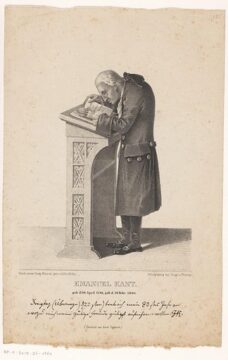Michel Chaouli, Sergio Tenenbaum and Keren Gorodeisky at The Point:
 Kant’s views here are taken by many philosophers to be an impossible attempt to have it both ways. Kant seems to be arguing that evil is necessarily attributed to each of us, apparently rooted in human nature. And yet at the same time he claims that evil is freely chosen: each of us is fully responsible for this unavoidable human predicament. But how is this possible? How could a condition “entwined with humanity itself” be something that “come[s] about through one’s own fault”?
Kant’s views here are taken by many philosophers to be an impossible attempt to have it both ways. Kant seems to be arguing that evil is necessarily attributed to each of us, apparently rooted in human nature. And yet at the same time he claims that evil is freely chosen: each of us is fully responsible for this unavoidable human predicament. But how is this possible? How could a condition “entwined with humanity itself” be something that “come[s] about through one’s own fault”?
Nonetheless I always found this passage to contain a powerful insight into the human condition. It is not only Kant who needs to have it both ways; we all do. The high ideals that we set for ourselves are indeed unattainable, and yet we betray our freedom if we do not own up to every particular failure of our agency. Not seeing that these ideals are unattainable, let alone thinking that one has attained them, is a form of moral arrogance or fanaticism that blinds us to the real obstacles for moral progress. Yet not seeing that our failures are imputable to us is a form of self-satisfaction that lets us rationalize our shortcomings as vicissitudes of human nature.
more here.
